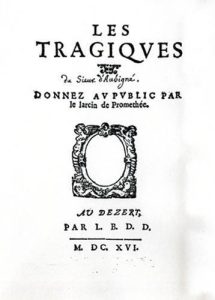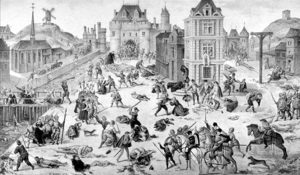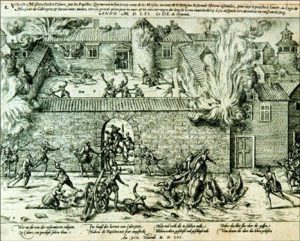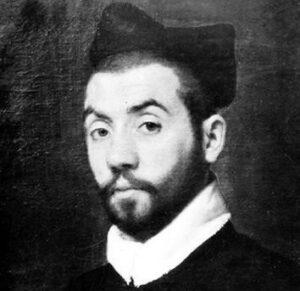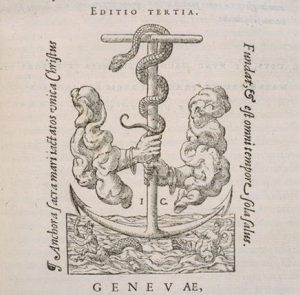A soldier
Born in Charente-Maritime in 1552 of a Calvinist family, he received a classical education in Paris, Orleans, Geneva and Lyon. At the age of sixteen, he enrolled in the army of Prince De Conde and became Henri de Navarre’s friend and companion. He took part in the wars of religion both as a soldier and as a writer, earning a reputation as a staunch advocate of the Protestant cause.He escaped the Saint Barthelemy massacre.
He never forgave Henri IV his conversion to Catholicism and remained hostile to various attempts to reconciliation between Protestantism and Catholicism.
Published in 1616, his Universal History (Histoire Universelle) deals with the times of the wars of religion. However much the author tried to be unbiased, his book was condemned (Chatelet court decision of 1620) and burnt.
The poet : «Les Tragiques»
Agrippa d’Aubigné is especially known for Les Tragiques. A heroic poem of over 9 000 lines, it was inspired by the persecutions undergone by his fellow believers. He reshuffled it several times between 1577 and 1623, when an expanded version was published in Geneva.
Les Tragiques is the work of a whole life, the epic of the war, of persecution, and of faith. Using an unusually violent language, d’Aubigné depicts the hardships endured at those times of religious wars, about which he felt he had the duty to testify. In fact, the poem is a prophetic vision inspired by the Bible, a journey of initiation beginning with the portrayal of present sufferings and leading to the ecstasy of the last verses, the triumph and glory of God.
Les Tragiques did not in fact become known until the XIXth century.
Agrippa d’Aubigné was the grandfather of Madame de Maintenon, born Françoise d’Aubigné, whom Louis XIV married in 1683. She was said to have influenced the king against Protestantism and to have instigated the revocation of the Edict of Nantes.


